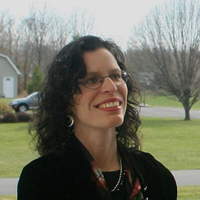MORGANTOWN, W.Va. – The charter school movement in West Virginia is gaining attention on the national level as a model for success.
During a visit to Morgantown with the Yass Foundation to recognize the award-winning West Virginia Academy, Founder and CEO of the Center for Education Reform, Jeanne Allen, said people across the country are watching, taking notes, and asking for advice.
“For people who work on the national level, it’s amazing, but West Virginia is now a model for the rest of the country,” Allen said. “No one used to think about West Virginia as a place you would expect change and innovation.”
Yass, founder of the Yass Prize, considered the “Pulitzer Prize” of education. Janine Yass, Executive Director of the Professional Charter School Board (PCSB), James Paul, and Senator Patricia Rucker, R-Jefferson, and Allen toured the academy following their semifinal finish in the national competition.
Rucker was the sponsor of Senate Bill 47 last year, which established the Charter Schools Stimulus Fund, but it’s not fully funded. The PSCB did receive $12.2 million over five years from the U.S. Department of Education through the Expanding Opportunity Through Quality Charter Schools program; however, those funds cannot be used for facilities.
“We give them no money for facilities, and of course, public school buildings are built with taxpayer money, but there’s nothing like that for charter schools,” Rucker said. “I’m really hoping we put some money in that starter fund.”
Yass toured the school in Morgantown, met with the leaders, observed the students in classrooms, and believes choice and independence in education should be promoted across the board.
“Schools like the West Virginia Academy show people what is possible, and therefore politicians and voters recognize more money should be spent following kids to the school of their choice,” Yass said.
The West Virginia Academy and others in the state, plus the two virtual academies, are demonstrating what can be done when taxpayers’ money can be used to support their choice, according to Allen. House Bill 2012, passed in 2021, allows 90 percent of the funding collected to follow a student to a charter school.
“For 2024 and beyond, our goal has to be to make sure every dollar that’s attached to a kid’s education follows that student to the school of their choice so they don’t have to go out and raise money to do what we see here,” Allen said.
There are two virtual charter schools in the state, and they are not at all similar to the environment thrust upon schools and families during the pandemic. The current virtual academies are more interactive, with some partnerships with higher education entities. Virtual students can participate in sports and take field trips, and there are no shortcuts to meet state standards for advancement.
“The same assessments are given to students in traditional public schools, and those results are reported to the states and are publicly available,” Paul said. “There are no more challenges than a county school system that has many students on many sites.”
